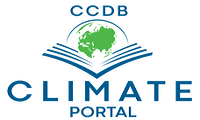Microfinance: A Solution towards Climate Change Adaptation
- Author(s): Faisal Bin Islam, Tasfia Tasnim
- Date of the news : 1st April, 2019
MFIs need to mainstream climate change and disaster risk reduction
In the recently concluded Second International Conference on Climate Finance (ICCF) held from March 9 – 10 at Dhaka, a group of researchers from the UK shed light on household expenditure for poor households across Bangladesh at the onset of climate-induced disasters. It was not surprising to see that people who struggle to survive on a day-to-day basis tend to bear the lion’s share of the burden of climate expenditure compared to government and donor sources.
What stood out, however, were the figures in respect to gender-differentiated expenditure.
Numbers reveal that female-headed households in Bangladesh spend thrice as much as male-headed households (18.8% of total income compared to 6.5% for male-headed households) on climate-related expenditure. While this unequal burden of expenditure can be mulled over, it is far more important to recognise that female-headed households and women, in general, tend to give climate action a much higher priority and are key actors for promoting climate change adaptation within their local communities. To further their cause, they need proper support and access to low-cost finance.
This is where microfinance comes to light. Microfinance refers to the provision of financial services, typically in the form of small loans, savings accounts, insurance, and money transfers, to customers that lack access to traditional financial services usually due to poverty.
Prevalent in Bangladesh since the country’s independence in the 1970s, microfinance operations have been playing a crucial role in promoting livelihood opportunities for the poorer segment of the population and contributing towards the country’s macroeconomic growth. The rural poor, especially women, who happen to be the most vulnerable to a changing climate owing to their low adaptive capacities, are generally the primary clients of microfinance institutions (MFI). Provision of long-term direct and indirect financial support by MFIs have been helping them build an asset base, thereby enhancing their ability to deal with manifold climatic shocks and stresses.
There is thus growing interest in the role MFIs can play in facilitating adaptation to climate change. MFIs are well positioned to support climate change activities at the local level due to its broad delivery infrastructure across the country and a good reputation for reliable service delivery. Different MFIs have been pivotal in promoting innovative and sustainable livelihood solutions such as saline tolerant crop farming, vermicompost production for rural households. MFIs also run vocational training as well as awareness building programmes, which help build human and social capital and thereby enhance the resilience of local communities. Furthermore, the high volume and limited value nature of the services offered by MFIs allows for decentralized decision-making by households and communities. With a large majority of their clients being women, MFIs also promote social inclusion and equity. MFIs can, therefore, be considered as important catalysts for community-based adaptation in Bangladesh.
Bandana Rani is one of the millions of women in the country who access services from MFIs to support their lives and livelihoods. She lives in Pashchim Char Umed in Bhola, a coastal island district in southern Bangladesh which is frequently hit by climate-induced disasters and is subject to slow onset stresses such as soil and water salinity. Mother of two and caregiver to her ageing mother-in-law, she is like any other rural housewife, whose scope of productive employment is limited by various social and cultural barriers. Access to microfinance a few years ago has allowed her to engage in income generating activities and at the same time has imbued her with increased decision-making power within her family.
“This all started when I received 200 earthworms to produce vermicompost in my backyard. I also received hands-on training on the practice. Selling the compost allowed me to gradually expand into vegetable production and also take up poultry farming and livestock rearing. I am now planning for my children’s higher education and thinking about reconstructing our house once I have enough savings.”
However, challenges still remain for people who are not covered by MFIs. During the ICCF 2019 experts shared that people affected by climatic disasters are more prone to seek finance from informal sources rather than from formal MFIs and NGOs. This often results in households getting trapped in a cycle of indebtedness, losing their assets and livelihood means. Families are sometimes forced to marry off their young daughters in exchange for a huge amount of dowry and often driven to migrate from their localities –actions that can be considered as ‘maladaptation’.
Microfinance has proved as an effective model for poverty eradication and productive employment for people who are unable to reach formal financing institutions due to their poverty and financial inability. There is potential for microfinance to be scaled up and mobilized as climate finance for diversifying people’s livelihood opportunities and rendering long term benefits, unlike typical fly-in fly-out projects by foreign donors, whose benefits do not usually sustain beyond the project cycle.
It is therefore important to recognize the fact that promoting climate adaptive microfinance to people who are most vulnerable to the impacts of climate change can play a massive role in enhancing the adaptive capacity of local communities. With the looming impacts of climate change, MFIs need to mainstream climate change and disaster risk reduction in their operations and proactively consider devising climate sensitive schemes to help vulnerable communities in Bangladesh dealing with current and anticipated climate risks. Promoting various types of insurance, such as agricultural insurance, weather-based insurance, or index-based insurance can help unlock new and innovative financial instruments to fight against climate-induced loss and damage.
- Source Website: https://www.dhakatribune.com/climate-change/2019/04/01/microfinance-a-solution-towards-climate-change-adaptation

